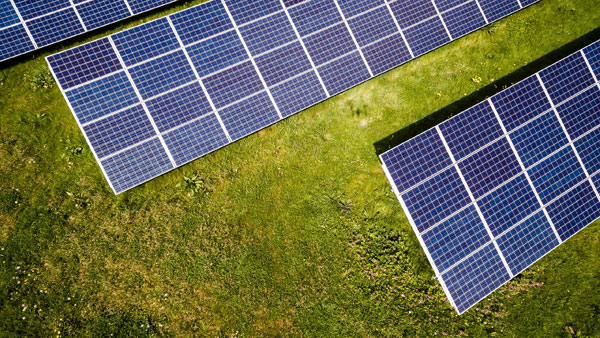HKU’s Professor Chow leads groundbreaking research in sustainable energy

[A photo of solar cells. Photo Credit: Unsplash]
In a significant advancement in organic photovoltaics (OPV), Professor Philip C.Y. Chow and his team from the University of Hong Kong's Department of Mechanical Engineering has unveiled groundbreaking findings poised to transform sustainable energy production.
Their research, detailed in the article "The pivotal role of interfacial donor-acceptor percolation in efficient and stable all-polymer solar cells," was recently highlighted in Nature Communications.
The research team employed a multifaceted approach combining several sophisticated techniques to explore the properties and behaviors of a novel electron-accepting molecule named Y6.
When polymerized, Y6 demonstrated remarkable potential in enhancing the efficiency and stability of OPV devices.
Utilizing femtosecond laser pulses in the initial phase, researchers gained unprecedented insights into the rapid behaviors of these molecules, crucial for manipulating their aggregation.
This precise control over Y6-PAs aggregation emerged as a crucial factor in optimizing organic solar cells’ performance.
This breakthrough is particularly notable because it addresses one of the longstanding challenges in OPV technology—the balance between device efficiency and operational stability.
The study's findings are pivotal for several reasons.
First, they provide a new understanding of the role of interfacial donor-acceptor percolation in the function of OPVs.
This concept refers to how electron donor and acceptor materials are distributed and interact at the molecular level, directly impacting the efficiency with which these solar cells convert sunlight into electricity.
Professor Chow's team discovered that enhancing the percolation of Y6-PAs at the interface could significantly increase the solar cells' efficiency and lifespan.
This is achieved by creating a more effective pathway for charge carriers within the solar cell, thereby reducing energy loss and improving overall performance.
Moreover, the research highlights the potential of all-polymer systems for solar energy applications.
Unlike traditional OPVs, which often rely on a blend of materials, a single polymer type augmented with Y6 could lead to simpler and potentially cheaper manufacturing processes.
These findings have vast implications.
With the increasing demand for renewable energy solutions, developing more efficient and stable organic solar cells represents a critical step forward.
OPVs offer several advantages over traditional silicon-based solar cells, including lower production costs, lighter weight, and the potential for use in various applications such as building-integrated photovoltaics and wearable electronics.
Professor Chow expressed optimism about the future applications, stating, "Our findings open up new avenues for the development of efficient and stable polymer-based solar PV panels. This discovery paves the way for more sustainable and viable solar energy solutions seamlessly integrated into our daily lives, including buildings, vehicles, electronic products, and clothing."
As the field of organic photovoltaics continues to evolve, the work of Professor Chow and his team will undoubtedly play a crucial role in shaping the future of solar energy technology.

- Seungmin Lee / Grade 11
- North London Collegiate School Jeju

![THE HERALD STUDENT REPORTERS [US]](/assets/images/logo_student_us.png)
![THE HERALD STUDENT REPORTERS [Canada]](/assets/images/logo_student_ca.png)
